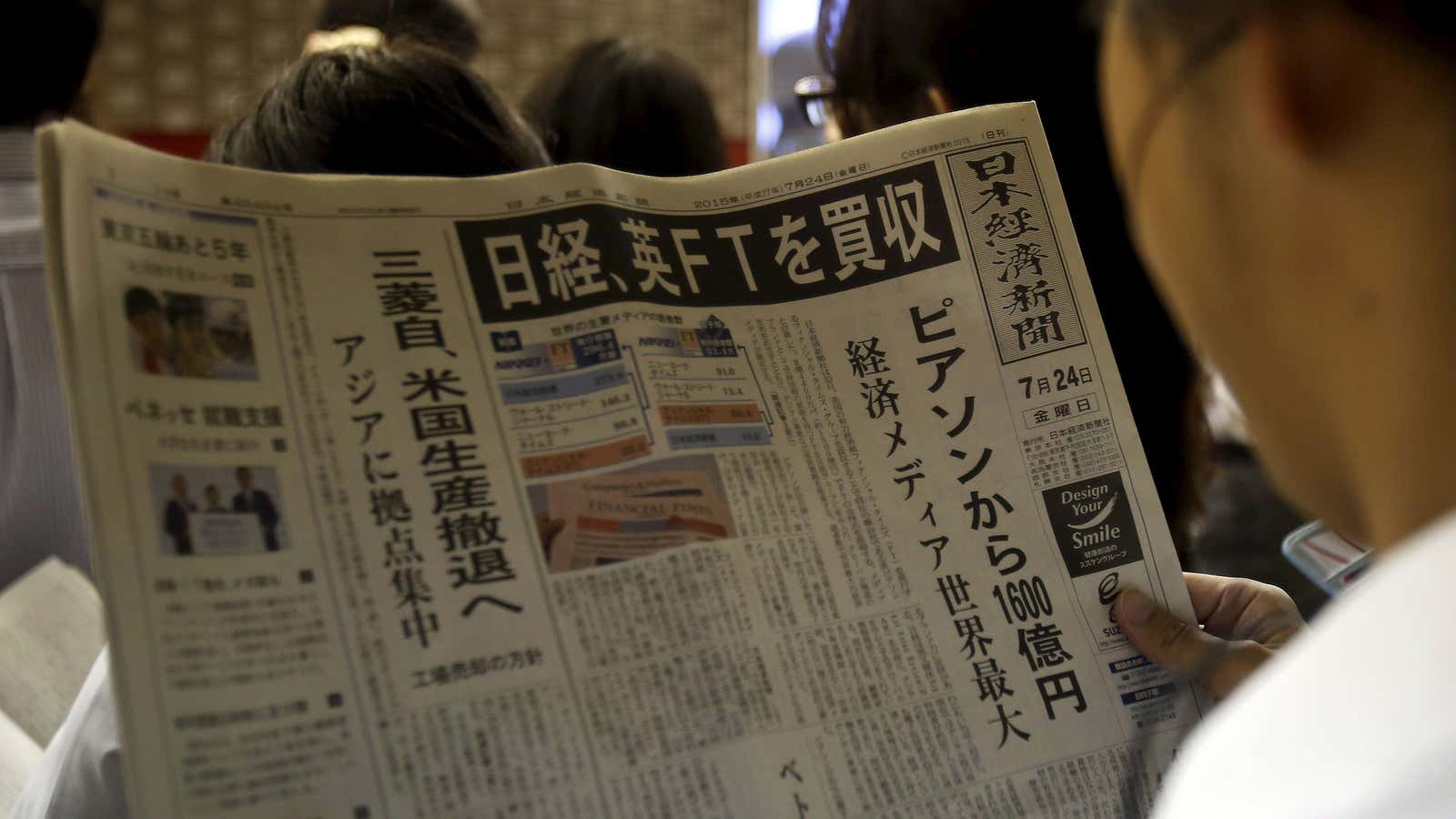The length of an apologetic bow from a Japanese executive is a pretty good gauge of his embarrassment. And the 15-second bow by disgraced Toshiba CEO Hisao Tanaka—who resigned this week over a $1.2 billion accounting scandal—was a doozy.
It was only the latest uproar in corporate Japan recently—see also the deadly safety lapses at air-bag maker Takata, a botched restructuring at Sharp, and fines for breaking sanctions at Bank of Tokyo-Mitsubishi.
All of which casts Nikkei’s $1.3 billion acquisition of the Financial Times in a potentially troublesome light. The paper has a reputation for hard-hitting business coverage—and it has not been shy about detailing the shortcomings of the Japanese press.
Back in 2011, the mainstream Japanese media failed to call Olympus to account when it was engulfed in a major accounting scandal. After Michael Woodford, the company’s newly installed CEO, clashed with the company’s board, he leaked a devastating dossier not to a Japanese paper, but to the FT. A 25-year Nikkei veteran later told the FT (paywall) that the country’s timid newspapers “are afraid of everything from losing advertisers to wrecking relations with corporate bosses,” and are dependent on innocuous leaks “that might dry up if journalists exposed uglier secrets.”
Japanese papers certainly aren’t alone in walking the difficult lines of access, influence, and conflicting business interests. Bloomberg backed away from (paywall) a controversial exposé of China’s leaders, allegedly due to fears of hurting its lucrative financial terminal business, and the Telegraph faced accusations from a top reporter that it had downplayed an HSBC tax evasion scandal because the bank was one of its largest advertisers.
Three former FT editors noted in a public letter (paywall) that “[t]here is nothing at present in the governance structures of the publication to guarantee the continued independence of the editor… Nikkei would do well to put this right.” If Nikkei wants to justify the relatively high purchase price and maintain the FT’s status, it needs to recognize that only an unfettered press can hold corporate and government power properly to account—else the FT will barely be worth the famously pink paper it’s printed on.
This was published as part of the Quartz Weekend Brief. Sign up for our newsletters here, tailored for morning delivery in Asia, Europe & Africa, and the Americas.
